There are a lot of countertop options for your upcoming kitchen remodel. Some will make your kitchen look amazing, while others will boost its functionality. Choosing which one to choose becomes a matter of taste and preference.
However, there are a few countertop materials that we here at MGS Contracting Services love using. There are also some other countertops materials that NKBA loves, and you’ll find everything about them on their website.
Keep reading and discover our top 14 choices for countertop material and learn the advantages and drawbacks of each.
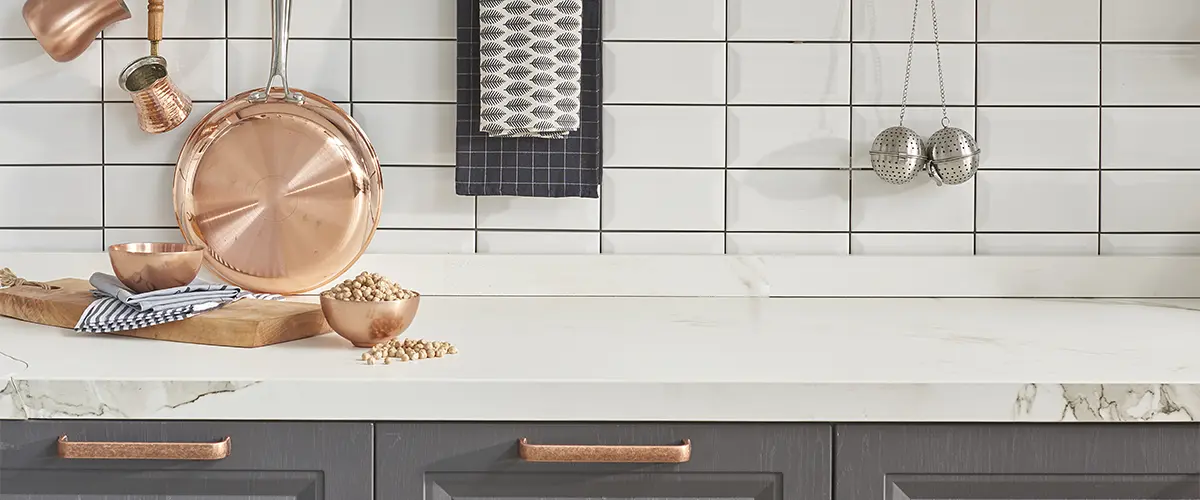
1. Granite
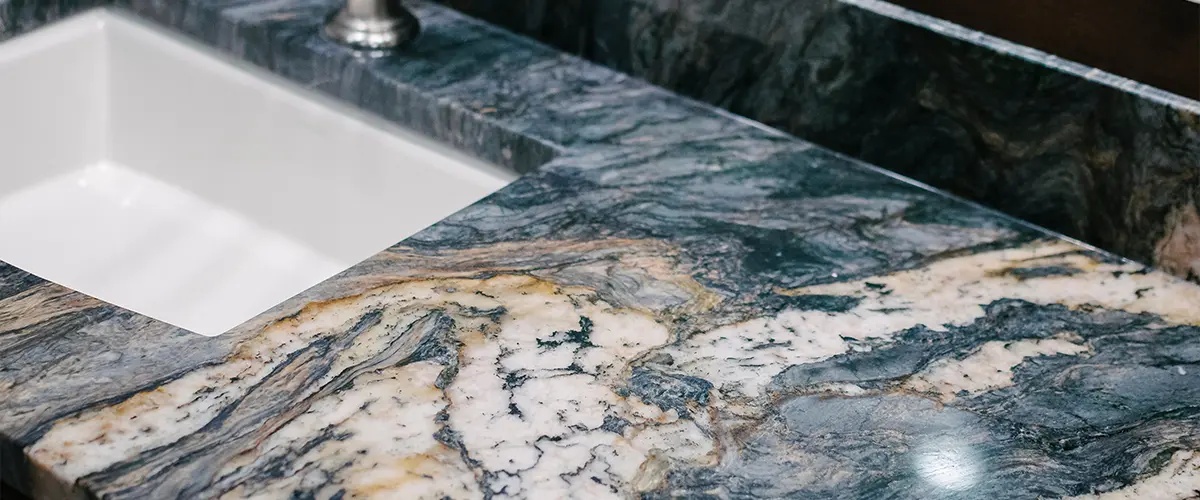
Pros and Cons of Granite Countertops
| Pros | Cons |
|---|---|
|
|
2. Quartz
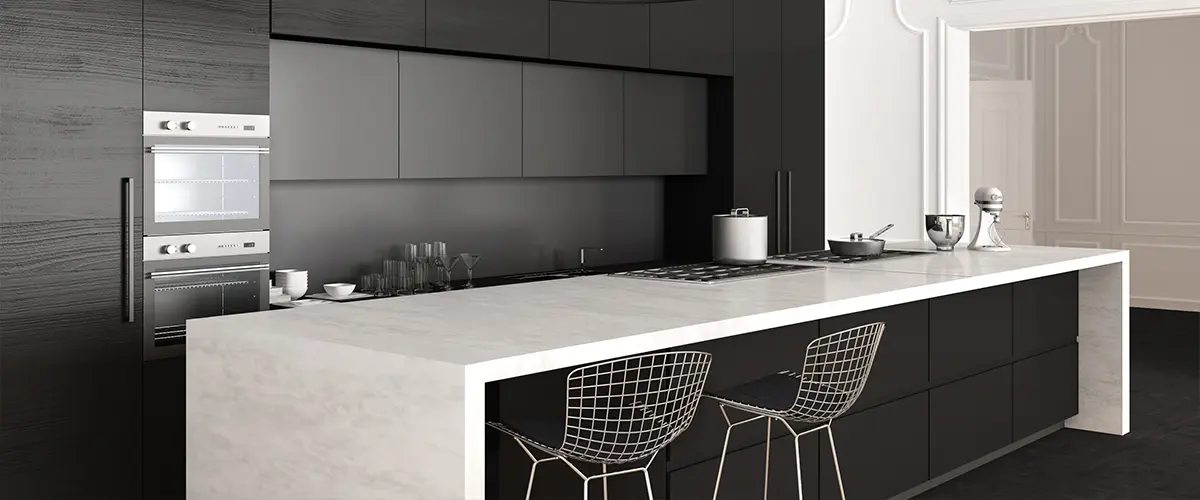
Pros and Cons of Quartz Countertops
| Pros | Cons |
|---|---|
|
|
3. Marble
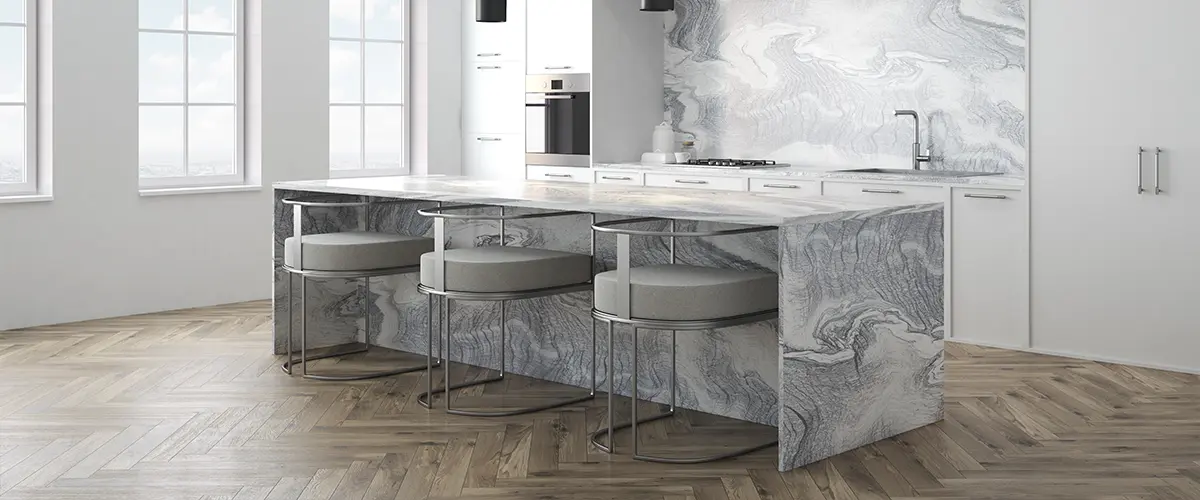
Pros and Cons of Marble Countertops
| Pros | Cons |
|---|---|
|
|
4. Laminate
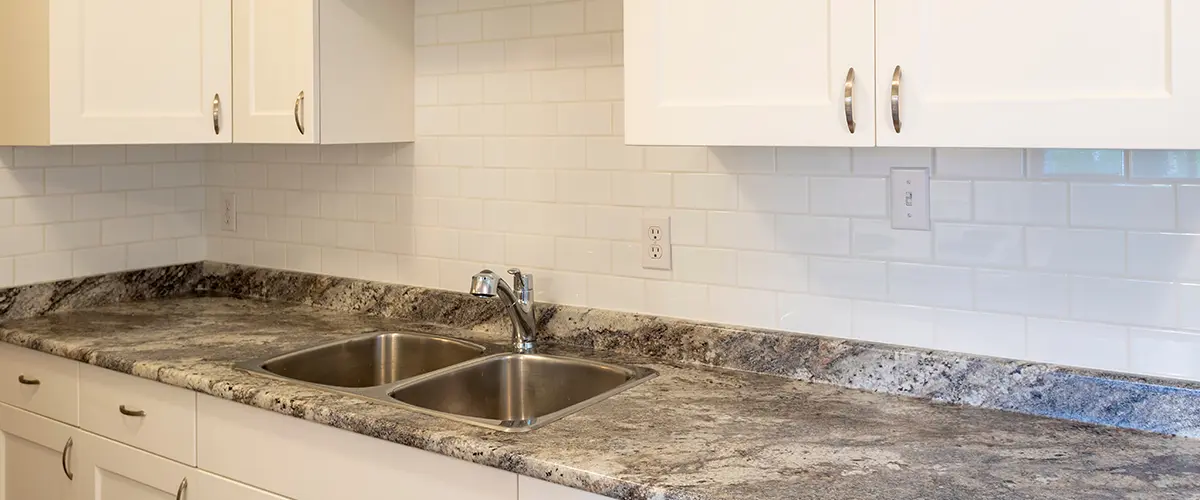
Pros and Cons of Laminate Countertops
| Pros | Cons |
|---|---|
|
|
5. Butcher Block
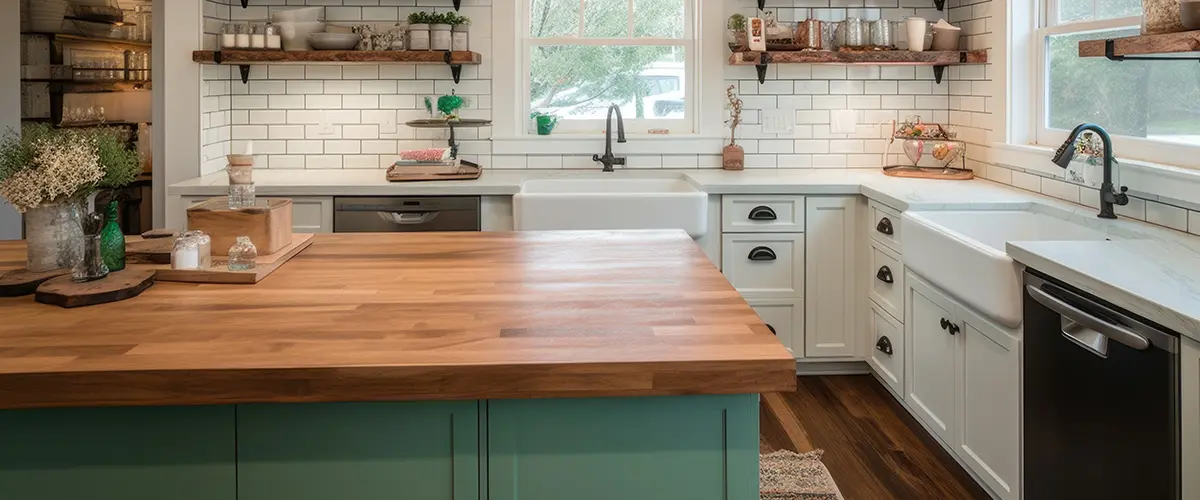
Pros and Cons of Butcher Block Countertops
| Pros | Cons |
|---|---|
|
|
6. Concrete
Pros and Cons of Concrete Countertops
| Pros | Cons |
|---|---|
|
|
7. Stainless Steel
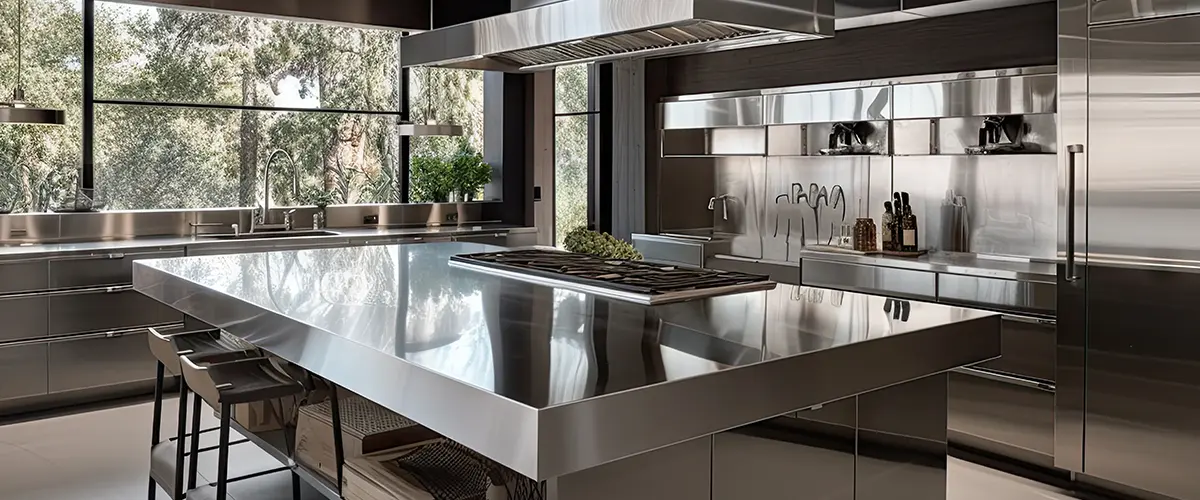
Pros and Cons of Stainless Steel Countertops
| Pros | Cons |
|---|---|
|
|
8. Soapstone
Pros and Cons of Soapstone Countertops
| Pros | Cons |
|---|---|
|
|
9. Ceramic Tile
Pros and Cons of Ceramic Tile Countertops
| Pros | Cons |
|---|---|
|
|
10. Solid Surface
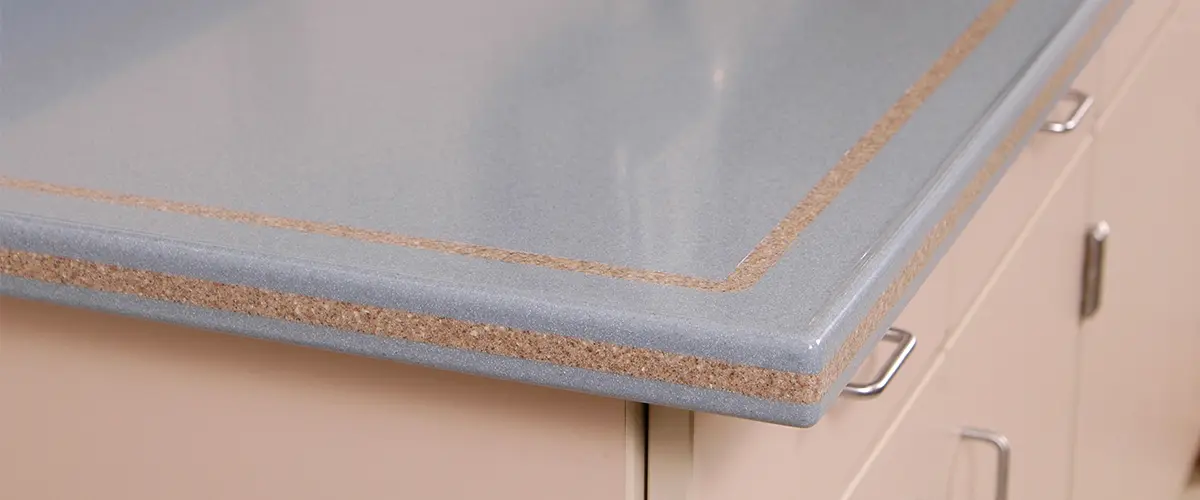
Pros and Cons of Solid Surface Countertops
| Pros | Cons |
|---|---|
|
|
11. Wood
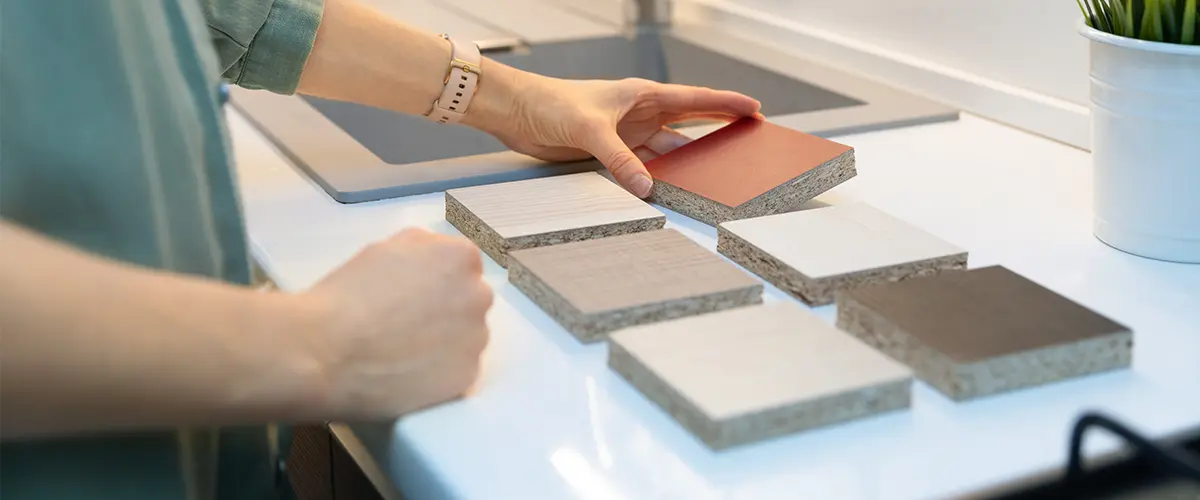
Pros and Cons of Wood Countertops
| Pros | Cons |
|---|---|
|
|
12. Natural Stone
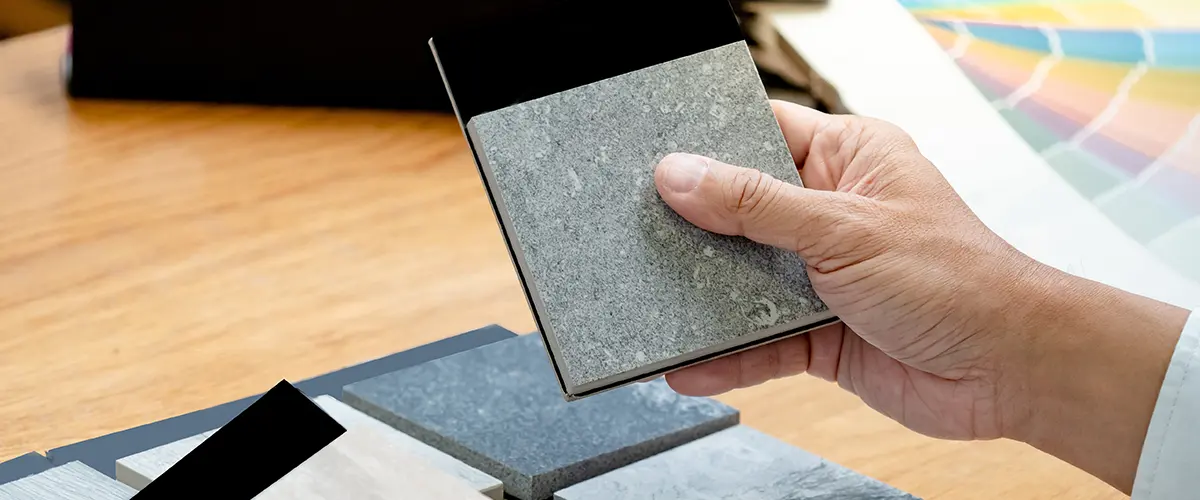
Pros and Cons of Natural Stone Countertops
| Pros | Cons |
|---|---|
|
|
13. Porcelain Tile
Pros and Cons of Porcelain Tile Countertops
| Pros | Cons |
|---|---|
|
|
14. Recycled Glass
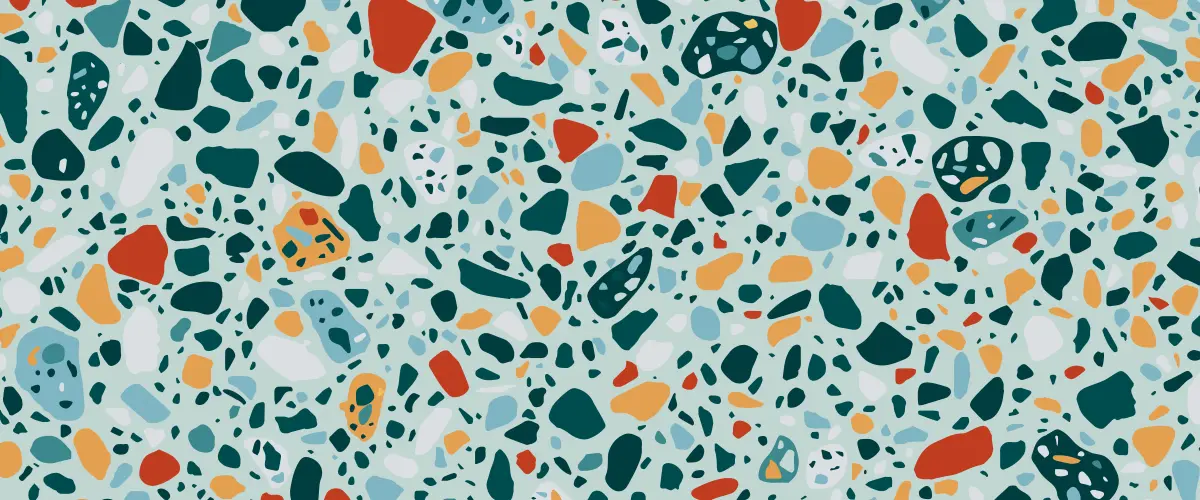
Pros and Cons of Recycled Glass Countertops
| Pros | Cons |
|---|---|
|
|
Countertop Material FAQs
The cost of a countertop can vary widely based on the material, size, complexity of installation, and location. Generally, more premium materials like granite or quartz tend to be more expensive than laminate or tile options.
It’s best to request quotes from local suppliers to get an accurate estimate for your specific project.
Laminate counters are probably the cheapest countertop material that you’ll find. The average cost of laminate countertops is $1,208, depending on the type of laminate and the labor costs in your area.
Wood countertop materials cost $20 to $70 per square foot on average. For a 50 square feet of countertop space, a wood countertop will cost you around $1k to $3.5k depending on the material itself, the dimensions, and the finish.
Marble slab countertops range from $40 to $100 per square foot, depending on the seller and the slab dimensions. For example, a 50 square feet of marble counter space will cost anywhere between $3k to $5k.
Conclusion
If you’re still not sure about your countertop material, we’re here to help.
MGS Contracting Services offers professional kitchen remodeling services for homeowners in Northern VA. We have our own designers that’ll help you choose the perfect countertop material for your new remodel, and our process to get started will make it extremely easy to get your well-deserved upgrade.
Request a free quote today or call us directly at (571) 577-9554 to discuss your upcoming project!
